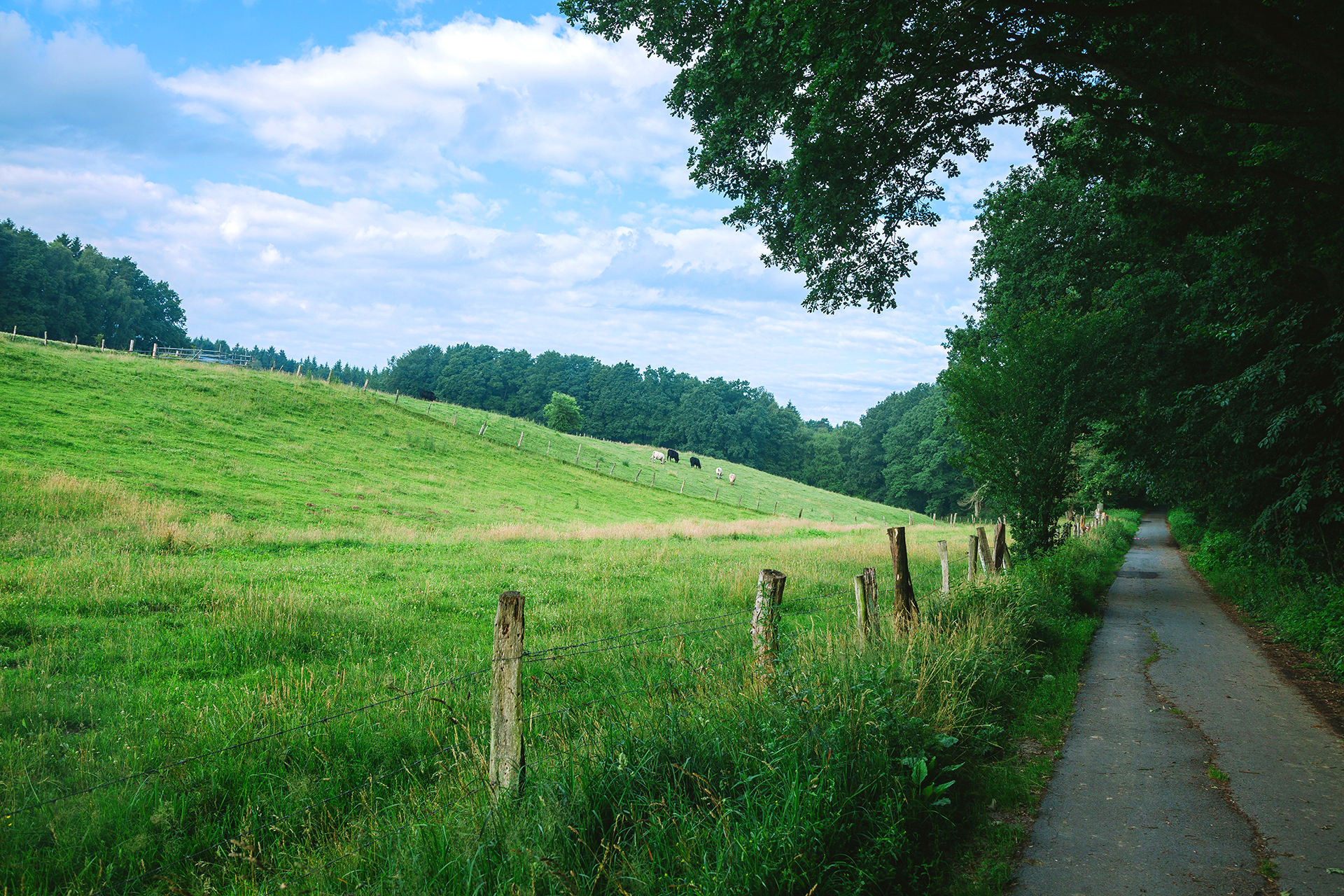Yes No
Share to Facebook
Can a Landowner Close Off An Access Road?
Where An Access Was In Place For Many Years, Unilateral Withdrawal of Access By the Landowner Is Forbidden. The Landowner Must Obtain Consent From Affected Neighbours or An Order From the Court.
Understanding the Requirements of Closing a Legacy Access Road Involving Express Consent of Road Users or Court Order
 Private access roads from across one person's land to another person's land often exist within rural areas and often as a legacy from neighbourly arrangements established decades ago. The law applicable to such roads is governed by the Road Access Act, R.S.O. 1990, c. R.34. While a landowner may perceive a unilateral right to close a road including a private road upon privately owned land, or to limit or restrict access to the private land upon which the road traverses, as explained below, where such a private road provides exclusive access to neighbouring properties, such neighbours may be with rights to access the private road without such constituting as an unlawful trespass.
Private access roads from across one person's land to another person's land often exist within rural areas and often as a legacy from neighbourly arrangements established decades ago. The law applicable to such roads is governed by the Road Access Act, R.S.O. 1990, c. R.34. While a landowner may perceive a unilateral right to close a road including a private road upon privately owned land, or to limit or restrict access to the private land upon which the road traverses, as explained below, where such a private road provides exclusive access to neighbouring properties, such neighbours may be with rights to access the private road without such constituting as an unlawful trespass.
Defining Access Roadway
To understand what is, in law, a private access road, section 1 in the Road Access Act defines the word "road" as well as the words "access road" as follows:
“access road” means a road located on land not owned by a municipality and not dedicated and accepted as, or otherwise deemed at law to be, a public highway, that serves as a motor vehicle access route to one or more parcels of land;
...
“road” means land used or intended for use for the passage of motor vehicles.
These definitions were recently confirmed and clarified within the case Whyte v. Binczak, 2019 ONSC 4068 where it is said:
[9] An access road is defined at s.1 of the Road Access Act as follows:
“access road” means a road located on land not owned by a municipality and not dedicated and accepted as, or otherwise deemed at law to be, a public highway, that serves as a motor vehicle access route to one or more parcels of land;
[10] The disputed roadway is not on land owned by a municipality and has not been dedicated and accepted or otherwise deemed at law to be a public highway. The only issue in this case is whether the disputed road serves as a motor vehicle access route to a parcel of land.
[11] Based upon the documentation and the title abstracts that were put before me, it appears that both of the properties in question have always been subject to the Land Titles Act, R.S.O. 1990, c. L.5, and therefore this is not a case where it would be possible to establish prescriptive rights.
[12] The parties agree upon the essential facts. They agree that the road was constructed in or about 1968 and that all of the adjoining owners contributed to the work and cost associated with the creation of the new access road. The parties also agree that for some 48 years following the creation of the road system in 1968, that access to the applicants’ property was always gained over the Binczak property on an unobstructed basis. It is also acknowledged that the maintenance costs associated with the road were shared by the previous owners of the properties in question. It was not until June of 2018 that the respondent saw fit to prevent use of the access road by installing a fence. The former owner of the applicants’ property notified the respondent in writing that the road across the Binczak property was his only road access to his property and that any effort to close such road would be met with legal action.
[13] It is the position of the applicants that the respondent’s obstruction of the access road was improper for two reasons. First, the applicants assert that there is no other road access to their property. Second, the applicants point to the fact that the respondent never applied to the court under the Road Access Act to obtain an order permitting the road to be closed.
[14] The respondent takes the position that the road that crosses her property is not an access road. The respondent takes this position by indicating that the applicants also have road access to their property from adjoining owners to the east.
[15] Various maps and photographs were provided by way of background. These maps and photographs show a clearly defined road that is located entirely upon the respondent’s property to a point that eventually permits access to the applicants’ property.
[16] These maps and photographs also show that by crossing the property of two adjoining owners to the east of the applicants’ property, the applicants may gain access to their property. The respondent states that given her belief that there is an alternate road that provides access to the applicants’ property, the road located upon her property is not an “access road” within the meaning of the Road Access Act because alternate road access exists.
[17] The applicants respond to this by stating that they only have access to the “alternate road” on a limited basis. In fact, after the respondent blocked the road crossing her property, counsel for the applicants negotiated an interim without prejudice access agreement with the applicants’ neighbours to the east that permits access to the applicant’s property on a date and time to be agreed to in advance. The without prejudice access agreement contemplates access to the applicants’ property for maintenance, repairs and emergency vehicles only.
[18] I do not accept the argument advanced on behalf of the respondent that the road that crosses the Binczak property is not an access road because an alternate road access exists. The limited road access that has been negotiated by counsel for applicants is not the type of absolute and unrestricted access that was enjoyed for some 48 years over the road that is the subject matter of this motion. The road access that was enjoyed for some 48 years was unrestricted and unfettered according to the evidence that has been placed before me. Based upon this evidence, I conclude that the road in question is an access road within the meaning of the Road Access Act.
Close Roads Only by Consent or Upon Court Order
A private access road may be closed only upon clear consent of the neighbours that use the access road or by a Court Order received upon an Application brought to the Court in accordance to the procedural requirements of the Court and where prescribed, if any, by the Road Access Act. Closing an access road without proper Consent or Court Order is a form of unilateral behaviour and is self-help frowned upon as creating a risk of causing neighbourly breakdowns as was explained within Whyte where it was said:
[19] Having made this determination, it was incumbent upon the respondent to bring an application under the Road Access Act if she wanted to close the road. No consent to closure was ever obtained. To the contrary, the previous owner of the applicant’s property made it clear that court proceedings would be brought unless the obstructions were removed. That threat has now been made good.
[20] It is exactly this type of unilateral behaviour by the respondent that the Road Access Act was meant to prevent. That statute provides a mechanism for all parties to come to court so that the matter can be determined in a civil manner with the application of proper legal principles after the court has had an opportunity to determine the applicable factual background. In 2008795 Ontario Inc. v. Kilpatrick, 2007 ONCA 586 (CanLII), at para. 17, the Ontario Court of Appeal observed that: “[t]he obvious purpose of requiring judicial authorization for closure is to avoid self-help measures and potentially violent confrontations among neighbours.”
As is further indicated within a complete reading of the Whyte case, injunctive relief may be sought as necessary to relieve and ensure against an improper closure of an access road. Per Whyte, a review of whether there exists an alternate unconditional use access road will be prominent in the ultimate decision regarding the closure of an access road:
[21] In Kilpatrick, the court observed that an owner may close an access road without a court order as long as there is alternate road access to the other property and noted that the onus of showing that no alternate road access exists lies upon the party seeking to use the access road. I am satisfied that the applicants have met that burden and that based upon the information that was put before me, the applicants have satisfied the onus of showing that no alternate road access exists to the applicants’ property within the meaning of the Road Access Act.
[22] In Kilpatrick, the owner of the land over which the access road ran advised the users that the annual fee to use the access road was to be increased from $500 to $2,000 per year. The users of the access road refused to pay the amount sought and the land owner closed the access road. In determining that a court order was required to close the access road, the court observed that “neither an unopened road allowance nor access over the existing access road on payment of a user fee can constitute alternate road access under the Act.”
[23] In other words, the court in Kilpatrick concluded that the imposition of a condition on the use of an access road could not be said to constitute alternative road access.
[24] The nature of the alternate access that is suggested by the respondent is also conditional as it is extremely limited and depends upon the prior approval of the adjoining owners to the east on each and every occasion. Such a conditional use of that road cannot be said to provide alternate access to the applicants’ property within the meaning of the Road Access Act.
Summary Comment
Property owners whose lands include a private access road must obtain the express Consent of neighbours whose only access to neighbouring lands is via the access road or seek same via a Court Order. The failure to do so may, and likely will, be deemed as an inappropriate unilateral behaviour as an improper self-help remedy giving rise to potential conflicts among neighbours as well as costly legal action.
Lastly, it is notable that this article addresses remedy for the unilateral closure of an access road by way of injunctory relief and an Application within the Superior Court of Justice. It is interesting to wonder about the legal outcome would be if a landowner whose property access was lost due to the closure of an access road by a neighbour were to install a new access road and sue for damages as a Plaintiff within an Action seeking damages rather as an alterative to pursuing an injunction via an Application; however, that is a discussion for another article on another day.


